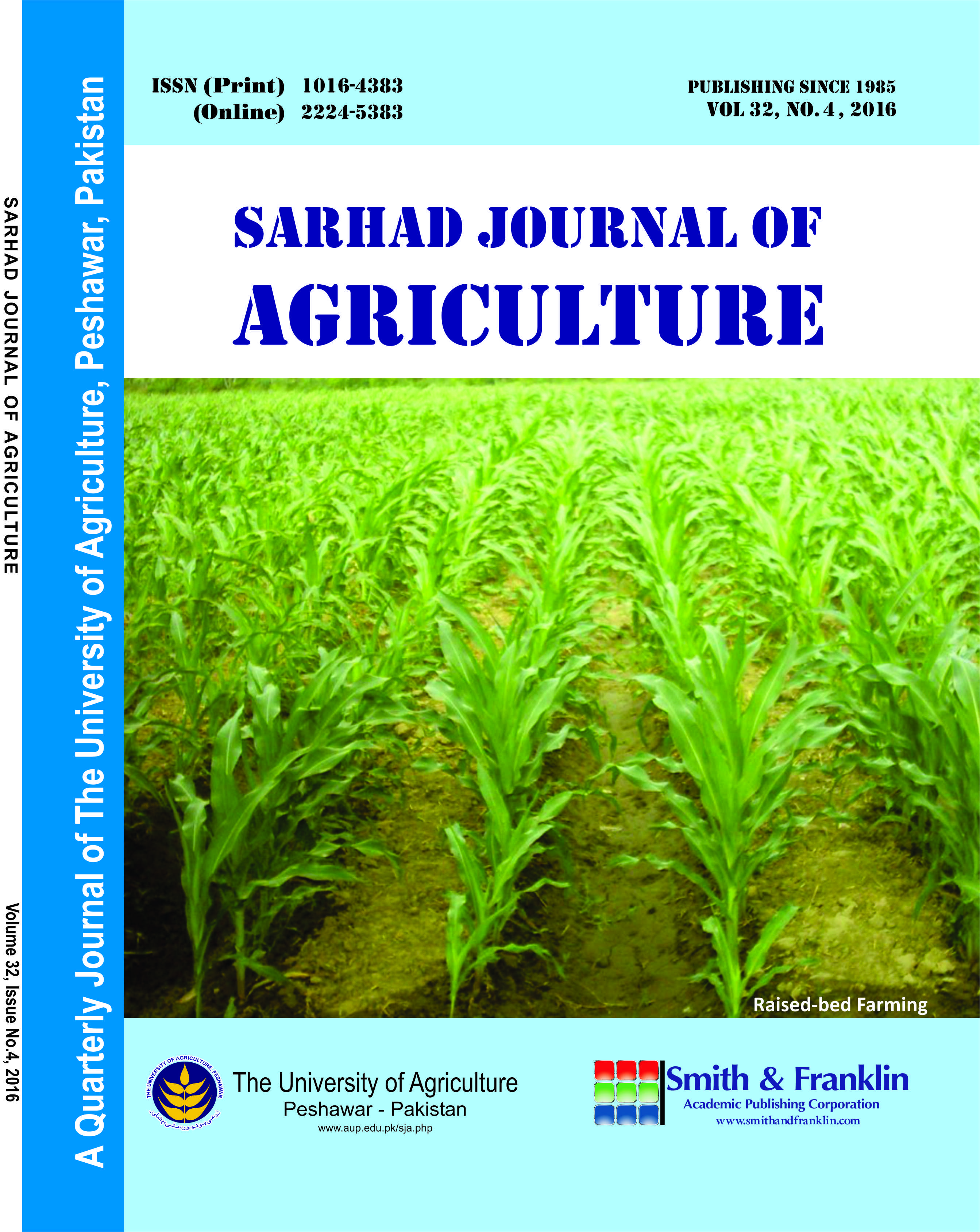Does Cotton Crop affect the Wheat Crop Efficiency and Productivity? Case Study of Rahim Yar Khan District, Pakistan
Does Cotton Crop affect the Wheat Crop Efficiency and Productivity? Case Study of Rahim Yar Khan District, Pakistan
Hina Fatima1*, Abdul Jabbar2 and Khurram Nawaz3
ABSTRACT
The study was aspired to investigate the factor of production that were influencing the technical efficiency of wheat crop in Pakistan. A formal survey of 430 wheat crop farmers was conducted in the district of Rahim Yar Khan in year 2014. In order to estimate the impact of farm inputs on wheat crop production, Stochastic Frontier Analysis (SFA) was used. The major objectives of this survey were to identify factors of variation and effect of planting of wheat after BT and Non-BT-cotton varieties on wheat production. In this study, the average technical efficiency of wheat farms on collective level was around 0.76. The mean technical efficiency of wheat after Non-BT and BT-cotton was 0.78 and 0.74, respectively. The result of the study revealed that those farmers cultivated the wheat crop after Non-BT cotton were technically more efficient compared to those who cultivated wheat after BT-cotton. The major factors that were found to be compliant for improved wheat production in study area were operational holding under wheat crop, which was cultivated after Non-BT or BT cotton, date of sowing, number of irrigations, tractors and tubewell’s ownership, tenancy status, farmer’s education and experience. The result of the study reported that farmers of wheat crop have the potential to produce the maximum level of wheat production provided that the farmers should improve their management skills. It is prerequisite in farm sector that farmers should use their managerial ability, knowledge, and technical skills in order to obtain the higher production and farm returns.
To share on other social networks, click on any share button. What are these?







